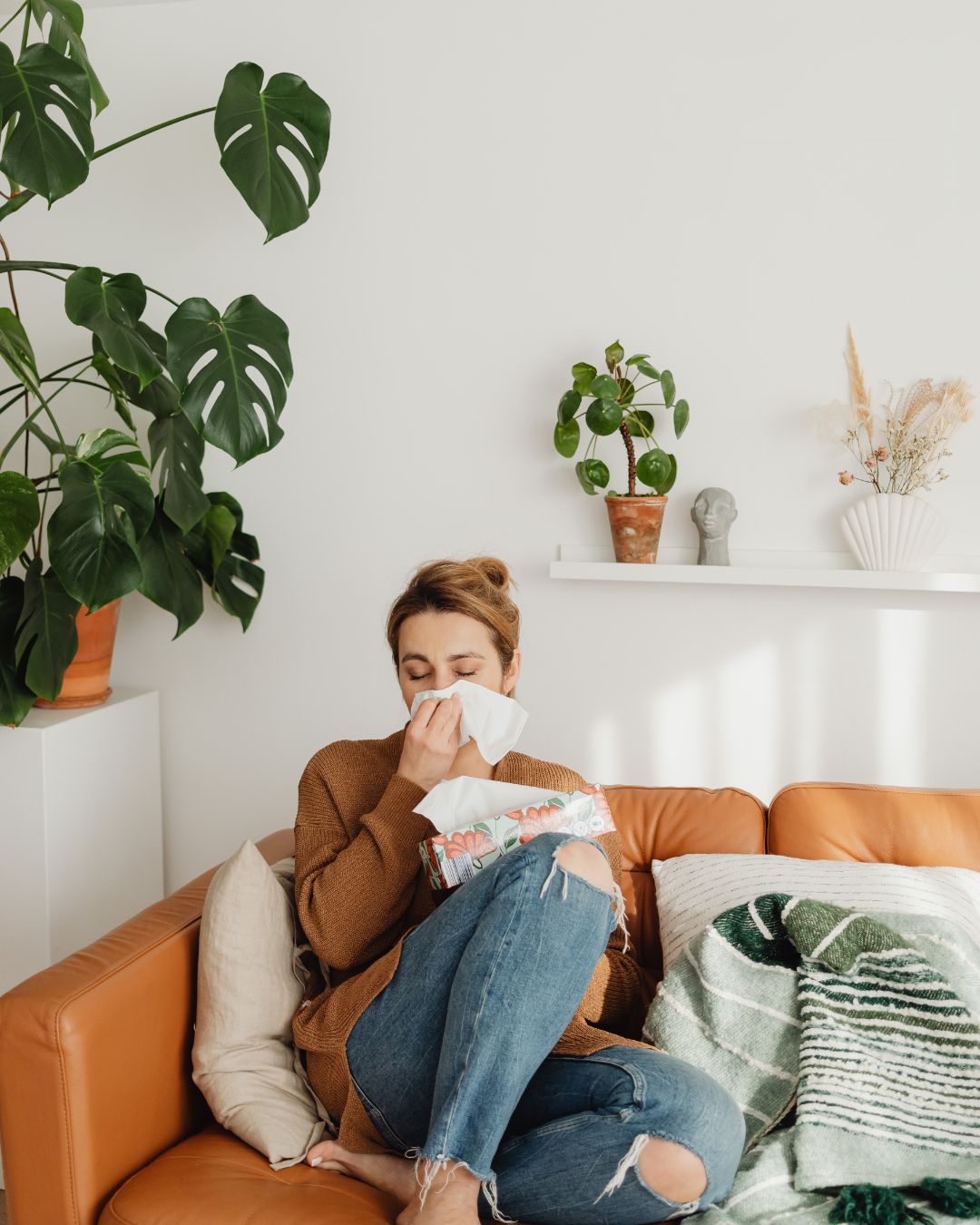Seasonal allergies can be an unwelcome gift of Spring. They can disrupt your regular activities, make it harder to sleep, work and play, drain the pleasure from eating a delicious meal, and cause others to cast leery looks your way wondering it if it really is ‘just allergies’. Over-the-counter anti-histamine medications can be effective in combatting the symptoms, however many prefer not to take medications every day and have concerns about the possible side effects of taking these regularly. Others find they only work for a limited time, needing to change medications to maintain effective symptom relief. If you’re a seasonal allergy sufferer, you should know that there are options that may be able to help clear your head this spring.
There are several alternatives from foods and dietary supplements, to botanical medicines to homeopathic remedies that may be able to relieve your seasonal suffering, and offer you the chance to experience the joy of stopping to smell the roses. To get you started, here are a few options:
- The anti-histamine diet: since most allergic symptoms are caused by an excess of histamine, reducing the intake of foods that trigger a histamine response is a great way to reduce our body’s levels without having to take anything extra (like a drug or supplement or herb). For some, this may be enough; for others, this may work best when combined with other items on this list. And for others still, the restrictions of this type of diet are less appealing than the allergy symptoms themselves. Common foods high in histamine include alcohol, fermented foods, vinegar, tomatoes, eggplant, spinach, ketchup, cured meats. Some foods cause a release of histamine in the body, such as bananas, tomatoes, alcohol, beans, papaya, citrus, nuts and some food additives. Foods lower in histamine include fresh meat or fish, eggs, non-citrus fruit, gluten-free grains (like quinoa or rice), most fresh vegetables, and cooking oils (like olive oil)
- Quercetin: this anti-oxidant nutrient is safe and effective for regular use as a supplement to reduce allergy symptoms by naturally blocking histamine. Although it is found in many foods, such as onions, apples, grapes, berries and broccoli, to get a high enough dose to combat allergy symptoms, your best bet is to take it in supplement form.
- Vitamin C: this common, safe, and popular anti-oxidant vitamin can also help to reduce histamine in the body. Taking vitamin C daily can help reduce the allergic response. You can also consider talking to a Naturopathic Doctor about getting high dose vitamin C injections to increase the absorption and availability of the vitamin in your blood stream. Foods high in vitamin C include red and green peppers, citrus fruit, tomatoes, brussel sprouts and cantaloupe. Again, to combat allergies, the best option is to optimize dietary intake in addition to taking a supplement.
- Stinging Nettle: stinging nettle is a plant with many health promoting properties, it is nutritive, restorative and a great support for the kidneys. It’s also a natural anti-histamine that can help reduce allergy symptoms. It’s considered safe for people of all ages, even in pregnancy. You can drink this tea daily for symptom support, or even add it to your food by cooking it up like any leafy green.
- Homeopathic remedies: whether it’s Allium cepa, Euphrasia, Arsenicum album, or another remedy, homeopathy is a great option for support in clearing up your allergy symptoms. Remedies are prescribed based on the specific symptoms that you’re experiencing, so for the best results, speak with a Naturopathic Doctor or homeopath to find the right match for you.
- Probiotics: there’s a strong connection between the state of the microbiome and the experience of allergies. Supplementing with a probiotic has been found to be helpful in mitigating the severity of allergies and food sensitivities.
Bear in mind, that your response to remedies for seasonal allergies can be as varied as the symptoms themselves, so it may take a few tries with different options to find the right match for you. As always, it’s important to consult a qualified healthcare practitioner whenever beginning a supplement or botanical medicine regime to get support with dosing and potential side effects. There are many options to naturally ease seasonal allergies, so reach out for support and clear your head this spring!
By Kristen Mark, ND

